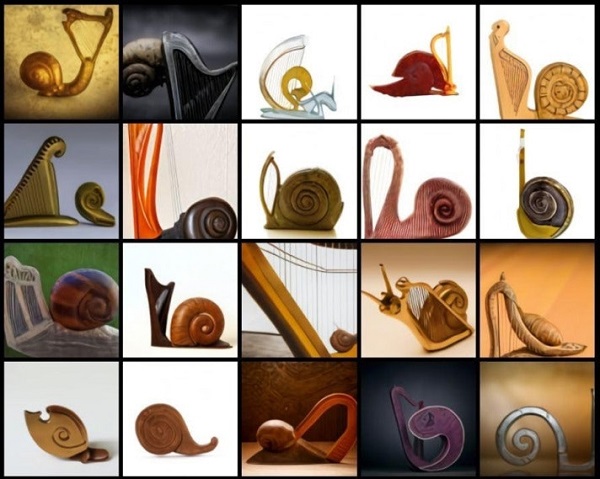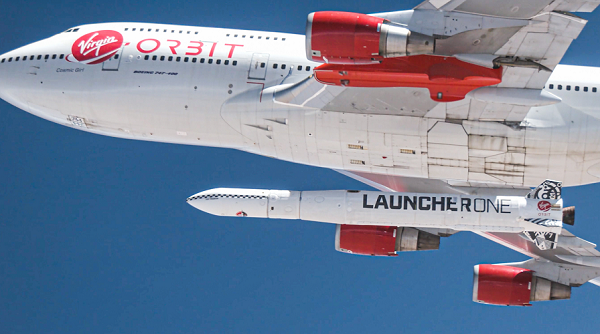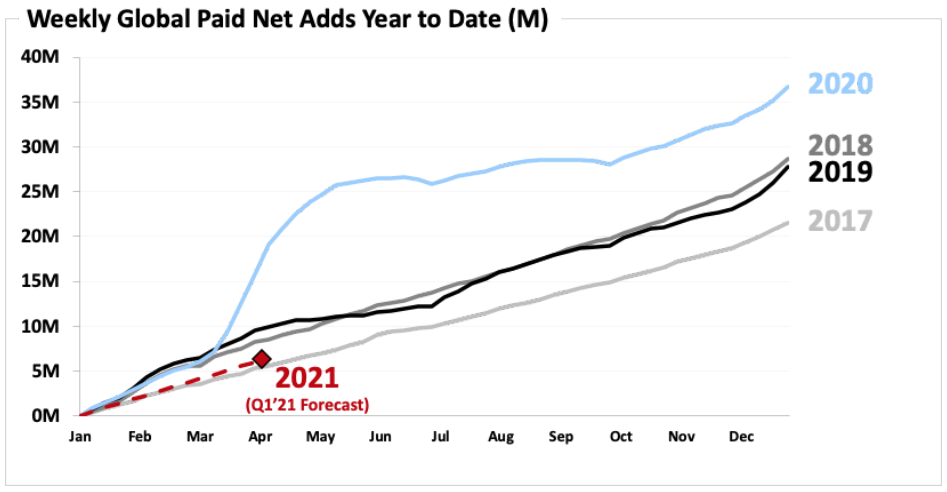Thomas Rice is the Portfolio Manager for the Perpetual Global Innovation Share Fund, based in Sydney, Australia.
Here's his wrap of the latest health, technology, innovation, and finance news.
Health
Korean researchers have come up with a way to diagnose prostate cancer with just a urine test, 20 minutes, and a splash of AI. The new technique boasts an accuracy rate of almost 100% (see the paper).
A 78-year old blind man in Israel became the first recipient of a new type of synthetic cornea implant called the CorNet KPro, which restored his sight.
Developed by a company called CorNeat, the KPro is the first implant that can be integrated directly into the eye wall to replace scarred or deformed corneas with no donor tissue. Immediately after the surgery, the patient was able to recognize family members and read numbers on an eye chart.
The scientists who helped develop Pfizer’s COVID-19 vaccine have used the same technology to develop a vaccine that they say cures multiple sclerosis in mice, taking us one step closer to a cure for humans.
BioNTech CEO Ugur Sahin led research showing that an mRNA vaccine might also work in multiple sclerosis, Fierce Biotech, a pharma news outlet, reported.
Sahin's team showed that an mRNA vaccine encoding a disease-related autoantigen successfully improved MS symptoms in sick animals and prevented disease progression in rodents showing early signs of MS.
Paralysed mice also regained the ability to walk after receiving a new gene therapy that stimulates nerve cells to regenerate developed by researchers at Ruhr University Bochum in Germany (see the paper).
The paralyzed rodents had lost mobility in both hind legs, but after receiving the treatment began walking in just two to three weeks.
Cognitive decline caused by aging was also reversed in mice via a tweak to their immune cells (see the paper).
“The most interesting thing that they were able to show is that the macrophages are causal in driving age-associated cognitive decline, and, in particular, that it’s sufficient to reprogram the macrophages outside of the brain,” says Jonas Neher, a neuroimmunologist at the German Center for Neurodegenerative Diseases and the University of Tübingen in Germany who authored an accompanying commentary.
Researchers developed a designer DNA therapeutic that wipes out cancer stem cells and treats multiple myeloma in mice (see the paper).
The team tested ION251 on these myeloma mouse avatars. Compared to untreated mice, the treated mice had significantly fewer myeloma cells after two to six weeks of treatment. What's more, 70-100% of the treated mice survived, whereas none of the untreated control mice did.
Artificial Intelligence
OpenAI showcased DALL-E, an impressive neutral network that creates images from text captions. Below are images generated from the text prompt “A snail made from a harp. A snail with the texture of a harp.”

Virtual and augmented reality
Augmented reality has been used in knee-replacement surgery in the US for the first time.
“At many time points during the operation it’s actually providing me information, making sure that my cuts are degree for degree, millimeter for millimeter, accurate,” Dr. Vigdorchik said.
The better a knee-replacement fits, the better the odds for an operation’s long-term success, Dr. Vigdorchik said.
Unsolved murder cases are being recreated in virtual reality in an app called CrimeDoor. Recently the 2017 Delphi murder of teens Libby German and Abby Williams was added to the app; the family hopes this will help solve the case.
“This is an app that is going to help so many people and change the perspective of crime," Kelsi German, Libby's older sister, said, "and hopefully, solve cases and get arrests for many unsolved cases.”
Apple is expected to launch a VR headset in 2022.
As a mostly virtual reality device, it will display an all-encompassing 3-D digital environment for gaming, watching video and communicating. AR functionality, the ability to overlay images and information over a view of the real world, will be more limited.
The disinformation age
A new study shows that Twitter bots are a major source of climate disinformation (see the paper).
Marlow and the other researchers determined that nearly 9.5% of the users in their sample were likely bots. But those bots accounted for 25% of the total tweets about climate change on most days.
Mobility
Microsoft is teaming up with General Motors to help drive Cruise, their self-driving vehicle business.
As part of the partnership, the tech giant will join GM, Honda Motor and other institutional investors in a combined new equity investment of more than $2 billion in Cruise, bringing the post-money valuation of Cruise to $30 billion.
Chinese autonomous vehicle startup WeRide has raised $310 million in Series B funding.
WeRide launched a publicly accessible robo-taxi service in Guangzhou in November 2019, covering an area roughly 89 square miles in the Huangpu and Guangzhou Development districts. In June, WeRide’s robo-taxi service became available to the public through Amap, a popular ride-hailing mobile app in China.
Drone giant DJI is building a team to work on self-driving cars.
The FAA has approved its first fully automated commercial drone flights.
Space
Blue Origin, Jeff Bezos’s space company, aims to fly its first crewed flight on its space tourism rocket as early as April.
Virgin Orbit, the rocket company founded by Richard Branson, has successfully launched its first small satellites into space. Unlike traditional launchers, Virgin Orbit launches its satellites from the wing of a Boeing 747 jumbo jet.
This air-launch strategy — which Virgin Orbit's sister company Virgin Galactic also employs with its suborbital space plane, SpaceShipTwo — increases flexibility and responsiveness compared to traditional vertically launched rockets, Virgin Orbit representatives have said.

Environment
Elon Musk tweeted that he’s offering $100 million to go towards a prize for the best carbon capture technology.
He added in a subsequent tweet that he'll provide more details next week, so it's not yet clear how such a contest will work or even what technologies might qualify. Carbon capture can refer to methods that prevent greenhouse gas pollution escaping from power plants and factories, or various ways of pulling it out of the atmosphere.
People buying SUVs are cancelling out climate gains from electric cars.
Globally, there are now more than 280 million SUVs on the roads, up from less than 50 million in 2010. On average, SUVs consume 20% more energy per kilometre than a medium-sized car.
The increase in SUVs in 2020 led to a rise in oil consumption that cancelled out the effect of electric cars, says Petropoulos.
Wood Mackenzie, an energy research and consultancy firm, believes that falling costs will secure solar’s dominance in power.
Of the 27 countries modelled, we estimate that by 2030, solar will be the lowest-cost generation in 18 countries, up from 3 in 2020.
Most importantly, solar is becoming so competitive that not only is it a means of decarbonisation for corporate buyers, but also a way to lower the cost of energy for their businesses.
Batteries
Batteries capable of fully charging in five minutes have been produced in a factory for the first time.
The new lithium-ion batteries were developed by the Israeli company StoreDot and manufactured by Eve Energy in China on standard production lines.
Other snippets
Gamers spent 31.3 billion hours playing games on Steam (a PC platform) in 2020, up 50.5% from 20.8 billion hours in 2019.
Netflix added 37 million subscribers in 2020 and has now topped 200 million total subscribers, leading to their shares jumping the most in four years.

Chinese TikTok rival Kuaishou could soon IPO at a value close to US$100 billion.
Kuaishou has 262 million users spending an average 86 minutes every day on the app. While Douyin was first known for goofy videos with music and dance that drew young people in, Kuaishou began as an app that documented daily lives of ordinary people outside of big cities.
Dropping WhatsApp? Nostalgia is driving some users back to ICQ. I didn’t realise that still existed, albeit in a slightly different form.
ICQ was a pioneering, mid-1990s internet messaging service then used on bulky PCs on dial-up. It was a precursor to AOL Instant Messenger and was last in vogue when the TV show “Friends” was in its prime and PalmPilots were cutting edge.
It’s been modernized over the years, and now is an app for smartphones. Lately it has skyrocketed up Hong Kong’s app charts, with downloads jumping 35-fold in the week ending Jan. 12.
Jay-Z is starting a $10 million seed fund for minority-owned cannabis startups.
The rapper and entrepreneur says he is motivated by an imbalance in the marijuana business: People of color, who have been disproportionately punished for involvement in the drug where it is illegal, comprise only a small number of those making money from the multibillion-dollar market in legalized pot.
Scientists have sequenced dire wolf DNA (see the paper).
First off, yes, dire wolves are/were real. Unlike Game of Thrones’ other famous creatures, dragons, they used to roam all over North America—more than 4,000 have been excavated from the La Brea tar pits in Los Angeles alone. Dire wolves became extinct some 13,000 years ago, and for a long time researchers believed that Canis dirus (translation: “fearsome dog”) were a sister species to the gray wolf.
Thomas Rice is the portfolio manager for the Perpetual Global Innovation Share Fund, based in Sydney, Australia.
Perpetual Investments is a sponsor of Firstlinks. This article contains general information only and is not intended to provide you with financial advice or consider your objectives, financial situation or needs.
For more articles and papers from Perpetual, please click here.